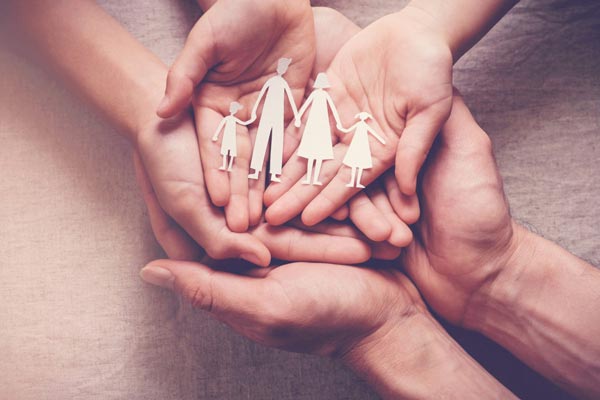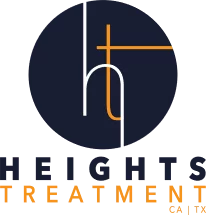Table of Contents
Drug addiction and depression often appear hand-in-hand for some people, especially those addicted to substances considered depressants.
In this article, you will discover how to help someone with drug addiction and depression.
How to Help Someone with Drug Addiction and Depression
Watching someone that we love go through depression can be heartbreaking.
From the outside, we can see all of the beauty and potential for a bright future that our loved one possesses. From their perspective, on the inside of the depression, they may not be able to see any of it. Being depressed is like being trapped in a darkened room. The windows may be within reach, but they are painted black and bolted shut.
Watching our loved one give in to the demon of addiction can be even more distressing.
Drug addiction can turn a kind person mean, a smart person dumb, and a physically healthy person into a walking husk. Unlike the whispering despair of depression, a drug addiction makes the problem very loud and obvious. Our addicted loved one may be risking their own life and may even begin to infringe upon the life and freedom of others.
It is often the case that the obvious addiction problem is acting as a distress beacon for people struggling with mental health problems. As of 2018 data, nearly 40% of people with a substance addiction also had a mental illness. This scenario is known as a comorbid or co-occurring disorder.
A person may start using drugs to escape the extreme discomfort of an illness such as depression. If that drug is addictive, such a person can end up with twice the problem.
On the other hand, a person may begin experimenting with drugs, only for those drugs to produce side effects of mental illness.
If your loved one is trapped in this prison of depression and substance addiction, you may have tried everything possible to help.
Putting so much effort into something, only for there to be no observable changes, can result in feeling helpless, frustrated, and even angry. It can help to remember that this struggle is hellish for the person within it, and they are not staying in that hell to spite those around them. It can also help us to learn and grow in ways that will provide better support.
The following tips can help you provide more effective help for your loved one with a co-occurring disorder.
Here’s how to help someone with drug addiction and depression.
Tip: Don’t Judge the Person
Practicing healthy judgments involves the ability to separate a person’s behaviors from beliefs about the individual’s character.
It is possible to disagree with the lifestyle and choices of your loved one while simultaneously avoiding the temptation to berate them through disparaging considerations and comments.
Your loved one is not you and does not have the same life experiences, personality, and coping techniques that you have.
Expecting someone else to think and behave exactly as we would is unfair, and maintaining that perspective can cause more damage.
Tip: Don’t Enable
Enabling behaviors can be hard to pinpoint.
When we love and care about people, we are prone to doing whatever we can to ease their pain. When what we are doing is also adding fuel to the fire of mental illness and substance abuse, our helping has deteriorated into enabling.
Enabling actions include attempting to ignore that there is a problem, making excuses for the negative behaviors, and continuing to supply the finances and other support for someone who is not using actively utilizing it as a way out of the bad situation. Spend some time in introspection, and examine whether what you are doing for your loved one is genuinely helpful.
Tip: Offer Resources
One way of not enabling negative behaviors by attempting to ignore them is always to be ready with suggestions of resources that may help your loved one to heal.
Presenting such resources without appearing judgmental or callous can be challenging. The goal is to provide a consistent reminder to your loved one that there are options available for receiving specialized help toward overcoming addiction and depression.
The types of resources that are applicable will depend on the position and personality of your loved one. Some people with depression and addiction will benefit from one-on-one therapy with a licensed professional.
Others will prefer the support of peers and counselors who have experienced a similar situation and overcome it. Still, others may be open to using prescribed medications to take the edge off of their symptoms. And, if your loved one isn’t ready for any commitment to treatment, simply providing a phone number for finding services can be helpful. If one type of resource isn’t well-received by your loved one, try another angle.
Tip: Practice Unconditional Positive Regard
The opposite action of judging someone is to practice unconditional positive regard.
This concept was developed by the famous psychologist Carl Rogers. It involves learning to love and accept people for who they are without attempting to force changes in their perspectives and behaviors.
Being accepted just how we are, is one of the most freeing and positive feelings a human can experience.
People with depression are already prone to be hard on themselves. We don’t need to make it harder.
Tip: Set Boundaries
Being unconditionally accepting of someone doesn’t mean we have to let that person trample on our peace of mind. Part of a mature, loving relationship is the ability to set boundaries for ourselves.
Your loved one may practice behaviors or act out in ways that are incompatible with your lifestyle. Finding where those boundaries exist and then being clear and consistent in not allowing those boundaries to be crossed can provide you with the space for managing your own mental and emotional wellness.
When we are well, we are better equipped to help someone else. It is helpful to note that there is a difference between setting our boundaries and attempting to control the behavior of others.
Conclusion
Now that you know how to help someone with drug addiction and depression, you’re ready to move forward to the next step.
Helping someone with drug addiction and depression isn’t easy, but it’s necessary. Your loved ones may need you more than ever before, so it’s important that you open your arms and provide the help you can.
If you have questions or need help, we’re here.
Sources:
- National Institute on Drug Abuse. Comorbidity: Substance Use and Other Mental Disorders. National Institute on Drug Abuse. Published August 15, 2018. Accessed October 12, 2022. https://nida.nih.gov/research-topics/comorbidity/comorbidity-substance-use-other-mental-disorders-infographic
- SAMHSA. SAMHSA’s National Helpline | SAMHSA – Substance Abuse and Mental Health Services Administration. Published August 30, 2020. Accessed October 12, 2022. https://www.samhsa.gov/find-help/national-helpline
The Heights Treatment Editorial Guidelines
There is a vast amount of misinformation online especially as it relates to health & wellness. We have made it our mission at The Heights Treatment to provide accurate, medically sound content that has been medically reviewed by a doctorate level clinician so that you can trust the information contained within our website.





